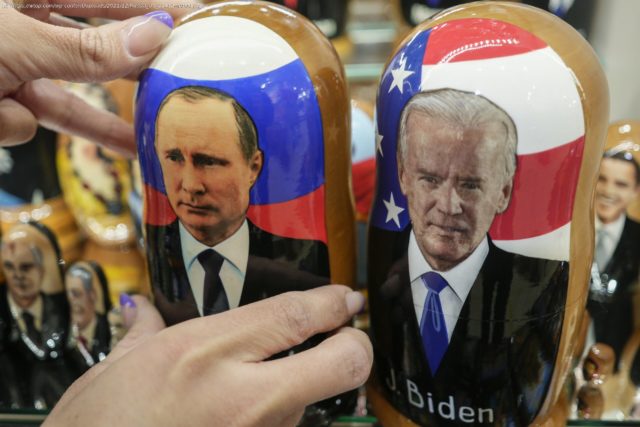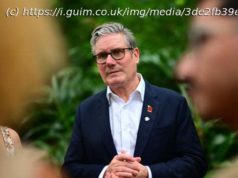The Cold War ended 30 years ago this month, but one unresolved issue – how closely Ukraine, a former Soviet republic, can ally with the West – is now creating some of the deepest U.S.-Russian tensions in years.
WASHINGTON (AP) — The Cold War ended 30 years ago this month, but one unresolved issue – how closely Ukraine, a former Soviet republic, can ally with the West – is now creating some of the deepest U.S.-Russian tensions in years. The dispute over Ukraine’s status and its growing alignment with U.S.-led NATO will be at the center of President Vladimir Putin’s video meeting Tuesday with President Joe Biden, whose administration says an extensive Russian military buildup near Ukraine points to a potential invasion. Russia denies any intention of invading and says Washington and Kyiv are the ones stirring up trouble. Putin has his own demands: A binding assurance that Ukraine will not join NATO and that the Western alliance will not add forces in states near Russia. “I want to make it crystal clear: Turning our neighbors into a bridgehead for confrontation with Russia, the deployment of NATO forces in the regions strategically important for our security, is categorically unacceptable,” Russian foreign minister Sergei Lavrov said last week, echoing Putin. That demand is a non-starter for Biden. A key principle of the NATO alliance is that membership is open to any qualifying country. And no outsider has membership veto power. While there’s little prospect that Ukraine would be invited into the alliance anytime soon, the U.S. and its allies won’t rule it out. “NATO member countries decide who is a member of NATO, not Russia. And that is how the process has always been and how it will proceed,” White House press secretary Jen Psaki said Friday. Ahead of his Putin meeting, Biden was consulting by phone Monday with European allies France, Germany, Britain and Italy to coordinate messaging and potential economic sanctions against Russia in response to the Ukraine situation. And Ukrainian President Volodymyr Zelenskyy wrote on Twitter that he had coordinated positions with U.S. Secretary of State Antony Blinken. “Agreed to continue joint & concerted action,” Zelenskyy wrote, saying he was grateful for the “continued support of our sovereignty & territorial integrity.






